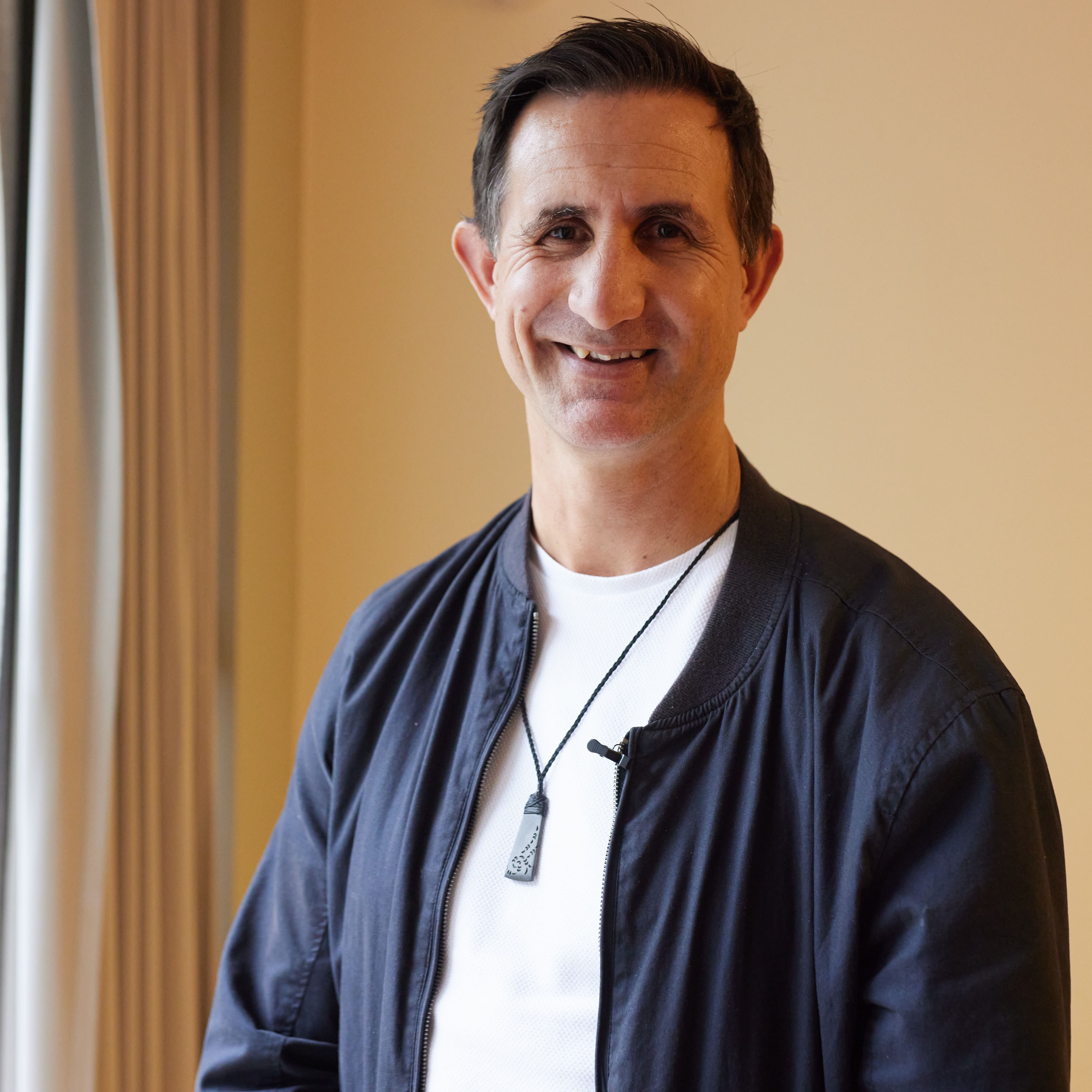Dr Dan Hikuroa
He appears regularly in the media, commenting on how a blend of science and mātauranga Māori can help us overcome our most important ecological challenges.
It’s therefore no surprise that Dr Daniel Hikuroa has become world-renowned for the way he has successfully integrated Earth system science with mātauranga Māori –Māori knowledge, culture, values and worldview – to help realise the dreams of the communities he works with.
Dan’s unique approach was born after he led an Antarctic geology mapping expedition for his PhD, and went on to investigate how the world’s oceans, plants and animals responded to climate change in the distant past.
As his knowledge and understanding grew, he increasingly found himself drawn to his Māori roots and to exploring the interface between mātauranga and science.
He was especially drawn to Earth system science, a discipline which considers our world’s land, rocks, water, ice, plants and animals to be interconnected with each other. In a practical sense, it blends several fields of study to address big challenges such as sea level rise, climate change and sustainable sources of energy.
“I discovered that Earth system science was consistent with a Māori worldview,” Dan says.
“It was just a natural progression of trying to understand the world as a system as opposed to being discrete, disparate parts.”
Since embracing Earth system science, Dan has become especially well-known for his work on projects related to water, such as in the Hauraki Gulf, river restorations, and Te Awaroa, a collective action to care for waterways, and more recently Let the River Speak.
He has also worked on geothermal developments, hazard and vulnerability assessments, and industrial waste site rehabilitation.
His expertise has taken him to Te Wānanga o Waipapa in Waipapa Taumata Rau – the School of Māori Studies and Pacific Studies, University of Auckland – where he is a senior lecturer in Māori Studies. He teaches a course on tikanga, indigenous environmental politics, earth systems science, kaitiakitanga and contributing courses in natural hazards and disasters, as well as the Science Scholar programme in the Faculty of Science.
Over the years, Dan has accepted invitations to deliver over 130 plenary, keynote addresses, public speeches and research presentations for international, regional and local governments, hapu, iwi, science societies, NGO’s, community groups and – increasingly – schools.
This passion for sharing his knowledge is matched by the inspiration he draws from his colleagues.
“I’m really inspired by the way they listen to the Earth, the way they listen to Ranginui, the way they listen to Papatūānuku, and then are so generous in their time with sharing it with anyone who wants to learn – from the little kiddies right through to the kaumatua.”
One of Dan’s colleagues, Michael Steedman, describes him as an exceptional communicator and a leader in the national conversation about mātauranga and science.
“Dan weaves mātauranga Māori and science to help solve challenges and realise the dreams and aspirations of the predominantly Māori communities he works with,” says Michael.
“One of the key contributions he has made is shifting the way we think about sustainability.”
Michael says Dan’s reputation has been built on his service to his discipline, his culture, and his grounding in science.
The gifts that have been shared with Dan by Māori, non-Māori and indigenous groups around the world are drawn from the knowledge that they will be treated with respect, care and attention, says Michael.
In addition to his academic work, Dan co-leads an action programme to care for the Waimata waterways and serves numerous communities as a board member, representative and independent scientific advisor.
Increasingly, this work has achieved tangible results. Over 20 projects have been undertaken as part of his relationship with Ngāti Whātua Ōrākei alone.
One project demonstrated that moorings in Okahu Bay were polluting the seabed with zinc, and these moorings have since been removed.
As a mātauranga and science advisor, Dan has also helped lead a range of projects to restore the mauri of the Hauraki Gulf / Tikapa Moana / Te Moana a Toi.
A key aspect of Dan’s work with various groups and communities is the philosophy of ā-kanohi (face to face). He aims to be ‘super-passionate’ and principled in his work.
He is optimistic about the potential for Earth system science and mātauranga to help make our world a better place to live.
“One of my goals is to train the next generation of people who do this work,” he says. “I want them to be so good they boot me off and take over.”
He dreams that mātauranga Māori will one day be ubiquitous throughout New Zealand society, and that “Māori wherever they are will be able to express that in ways they choose to”.
For Earth system science, he sees a future in which a multi-disciplinary approach can shape our world for the better.
“For decades, scientists tried to understand the world within our disciplines,” he says.
“Now it’s time for us to see the world as an integrated living system – and in so doing we’ll be able to tackle some of these really challenging things that we face.”


